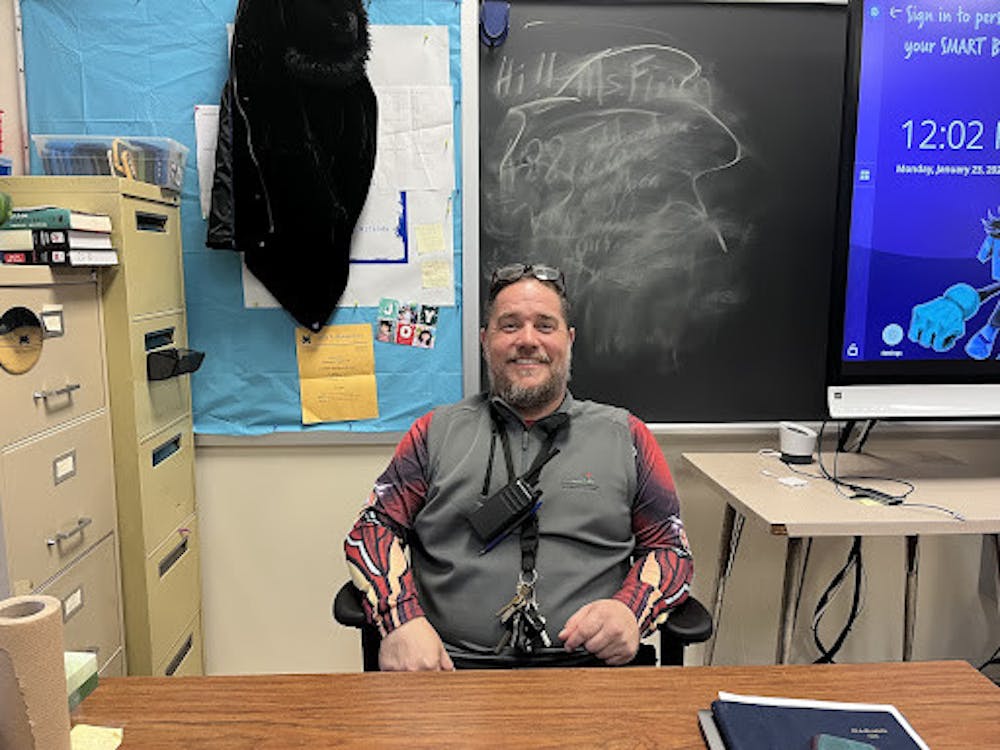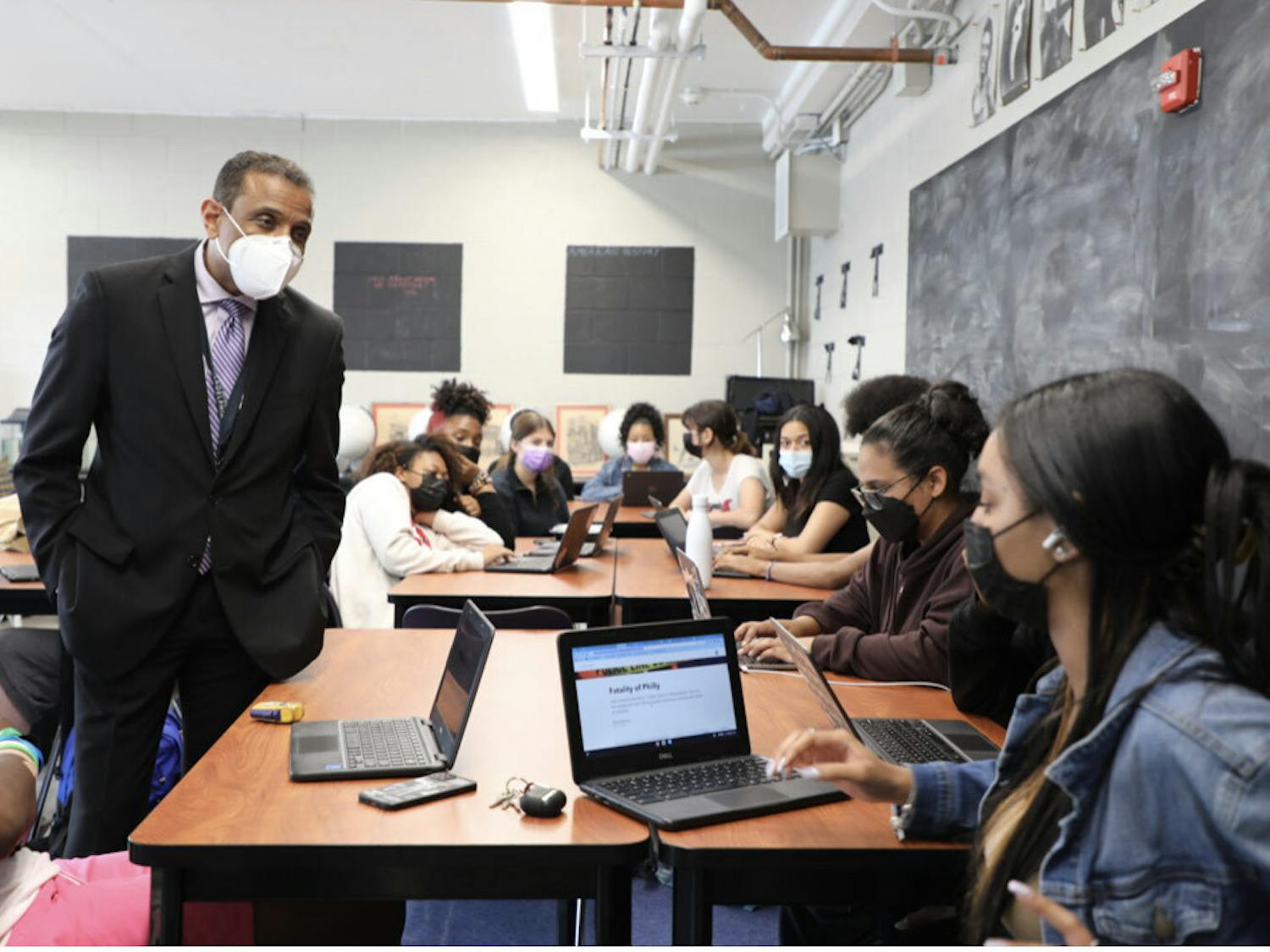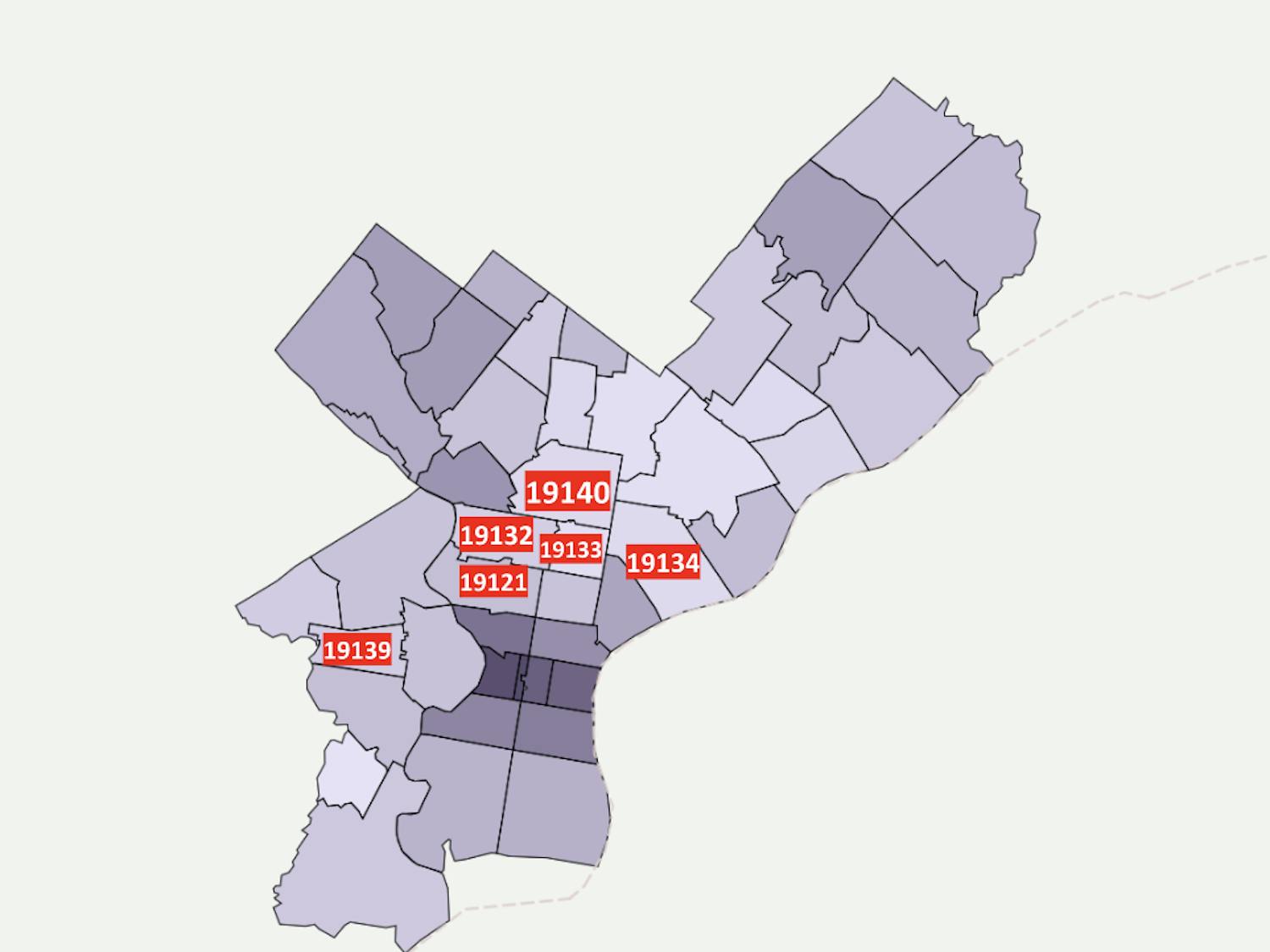Justin Gilken, Masterman’s Dean of Students, English teacher for grades 8-11th , and 12th grade AP Film teacher is a beloved at Masterman. Having been at the school for only four years, he already created a support system for students that was otherwise foreign to Masterman. On Thursday, January 12th, I was able to interview Mr. Gilken about what he does in a day and ask him some personal questions about teaching to further understand what goes on in the lives of our teachers.
Mr. Gilken starts his day at 4:30 am, hops on his stationary bike for 40 minutes, takes a shower, and eats breakfast. He then makes breakfast for his kids and wakes them up for school at 6:15 AM. By this time, he is dressed and ready for school, and from 6:15 am to 7:15 am, he is doing school work. He’s checking emails, texting his administrative deans, posting messages for the Masterman JV basketball team he coaches, and updating his google classrooms’ lesson plans. Finally, he drops his kids off at school and heads down to Masterman.
What is one thing you wish more students and parents knew about teaching?
“I guess that the thing that I wish that more parents and students knew about teachers is how much time we work when we’re not in school. Teachers teach classes, (but) they have other duties that are assigned. For example, I’m the Dean. Some of us coach. Some of us run clubs. And within the time of the day that we have, there’s never enough time to get things done. For example, all my grading I do at home. All of my planning I do at home. I do a lot of prep, I do a lot of stuff, I spend a lot of my own money on stuff for my classroom, on stuff for my teams because I have a job that I love. I have a job that I really love, but it’s hard.
“I think that there’s a misconception that teachers work 180 days a year, they work 9 months, they have all weekends off, they have holidays off. I grade every Sunday. Every Sunday I am grading for 4-6 hours. And I might be doing that while I’m watching an Eagles game and making dinner for my kids and stuff, but it’s there. I start work at about 5 o’clock in the morning. I’m hoping people understand the scope of this job is huge. There are a lot of moving pieces. So that is the one thing I wish they knew.”
First period, he spent planning for his midterm: photocopying and printing the exam. Second period, he met with the administrative team. Third period, although reserved for planning and prepping different classes, was interrupted by a student in need: his highest priority.
Can you share a moment where you felt proud of your students?
“I can share a moment from today. Today, we had a student who was in distress with midterms, with personal stressors and stuff that was going on in the student’s life. They were really melting down, but they didn’t want to show outwardly how much they were struggling, but they were struggling in a way that made us as a group of adults worry about them, and their education. Another student who is friends with this student, [and] who has a trusting relationship with me, came to tell me about it and then that student because they were worried that the student wouldn't necessarily be receptive to me reaching out to them. The student sat with their friend in a meeting with me and their counselors and Ms. Lennon, our assistant principal, and they helped us help their friend get what they needed to get to a healthy place. That’s the kind of support and kindness and friendship that you may or may not be learning from English writing skills in my class everyday. I'm hopeful that my students are, but I also want people to learn these life skills about being an empathetic person, being a friend, and how to support a friend.”
Mr. Gilken is the APLAC teacher at Masterman and -for a majority of the school year- has been teaching twice the classes he was supposed to due to a teacher leaving suddenly. Today, during the fourth period, he met with his new co-APLAC teacher: fresh to Masterman. They conversed about what the midterms would look like and other adjustments.
What’s the biggest lesson you’ve learned from teaching?
“The thing that I have learned at Masterman and at my other schools, [and] this applies to me being an English teacher, is that every time we get into a book that I’ve taught for years and years, someone is going to say something about that book, or say something about what we’re reading, how we’re reading it, they’re going to address it, and I’ve never heard it before. I’ve always learned from my students' insights on the text that we read. So there will always be something new to be said. If it’s Romeo and Juliet, they’ll always have something new to say. Even if it hasn’t been done for 500 years.”
Fifth, sixth, and seventh period, Mr. Gilken taught two sections of APLAC and a section of 12th grade AP Film.
Enjoy what you're reading?
Signup for our newsletter
As the dean of students, you’ve become a close friend to a lot of students. What do you wish more teachers knew about students?
“I’m gonna answer this a little differently, and talk about something that I do that may be a little different from some of my colleagues, and that is to let my students know about my life outside of school. I want them to know that I’m a dad, that I play a lot of golf, and I have a silly little dog. I think that makes me a person to my students, and that allows for a relationship that ultimately makes the teaching and learning that happens in my classroom more effective."
“It’s one of the harder things I think about Masterman, which is a city-wide school. In Florida, it was a big neighborhood school. It was a big community, but I lived in that community, and I would see my students at the supermarket with my kids. There was interaction. I think the more that that barrier can be moved or broken down, the more effective the communication is, and the teaching and learning is a function of communication.”
He left early from his 7th period APLAC class to catch the bus with the JV team to “catch that dub against Fells” (they did not catch that dub). After the game is over, he takes the bus back to Masterman with some of the team, getting back to school at around 5:15 pm to 5:25 pm.
What was it like working with the new lottery system?
“It was, well I mean, it was fine. I think the biggest issue for all of us was the uncertainty of the system that’s new. We knew the system that we had, we knew how it worked, we knew the outcomes that were provided, and that there were big flaws in that system, but it was what we knew. What you know, whether it’s flawed or not … is comfortable. So this new lottery system represented probably the greatest tangible change to the direction the district is going with criteria schools, and because of that, I think it was, it caused me anxiety because you don’t know what you don’t know and do know until something happens, so I didn’t know what the system was, and that’s what it was like working with it. It was nerve wracking because it was new, but the kids who we have at Masterman in the ninth and fifth grade, they’re wonderful, so it was good. I think it was just scary because it was new.”
From there, he gets in his car, picks up his kids from school, and goes home. Tonight for dinner, he’s planning on ordering Chinese food. After he eats, he will do work that didn’t get done during the day, send some emails, and hopefully by 8:30, put an end to it for good.
How do you envision the future of Philly public schools?
“That’s a hard question because I’m stuck so often in the present. I can speak to how I envision the future of our school. I envision the future of our school as a place that everyday, every month, each year becomes more welcoming. Becomes a place where, through the adults that work there, through the programs that we offer there, becomes a place that kids want to go to. That they don’t dread, but they look forward to going to. Those are like the two polar opposites, dreading and being excited. And I’m not trying to polarize the issue, but something where students, whether or not they're tired when they wake up in the morning because all teenagers are tired when they wake up in the morning, but once they are up, they’re excited that they’re coming to this place everyday. And we do that by becoming a more responsive community by becoming a more empathetic community, by listening as a group of adults. That’s like a big key. That’s something I hope happens in this building that I think can happen in any building.”
Mr. Gilken is a teacher with an insane workload and an immense amount of responsibilities, yet he always puts his students first. I’ve experienced days in school, like all students, where I needed someone to confide in, and I know that I can walk into the dean's office, and Mr. Gilken will put down anything he is doing to listen. This is not unique to me as the dean’s office is constantly filled with students conversing, eating, laughing, crying, studying, sleeping, etc. because student’s well-being is prioritized there.
I’ve seen the endless To-Do post-it notes, the papers he’s had to grade, his packed schedule, the stressors of his personal life. I’ve also seen him forget all those things when a student needs a helping hand. I can only understand a sliver of the workload he has, but my gratitude for the dean’s open doors is immeasurable.
Our teachers go through unmanageable workloads and schedules, intense situations, and more just so we can survive within our schools. It often goes unrecognized. Teachers like Mr. Gilken make school easier for students and give them a place to feel seen, appreciated, and supported.




